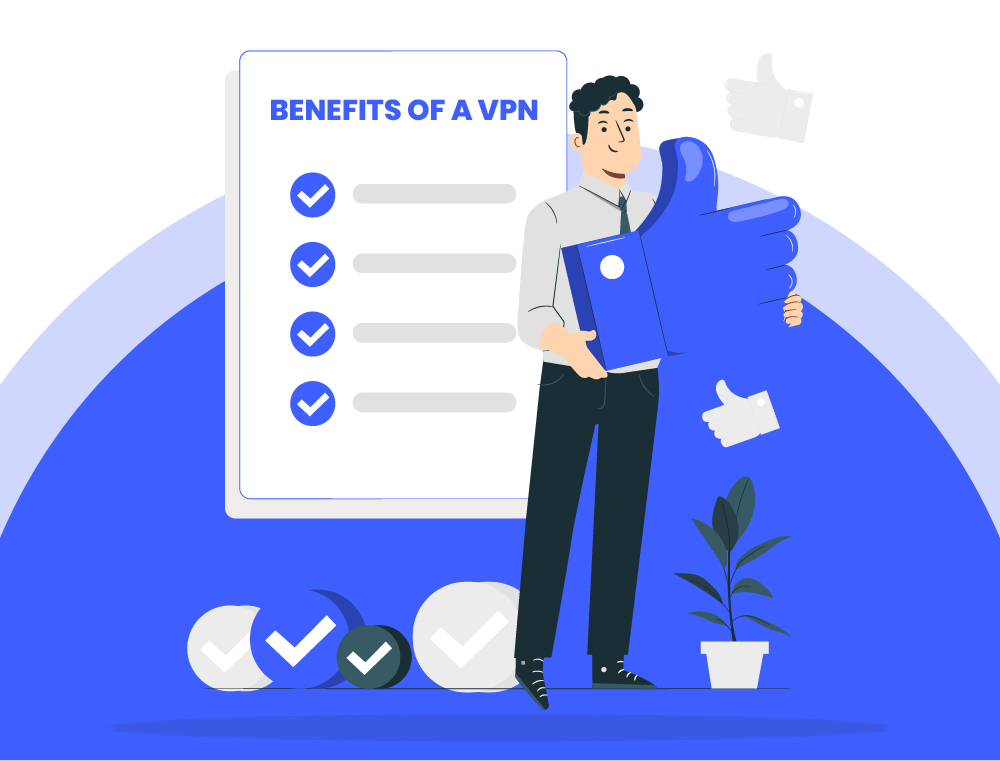Given that every click and scroll leaves a trail, using a VPN has become more of a need than a technological fad these days. Though not without their disadvantages, VPNs provide a combination of privacy, security, and online independence. Here is a sincere analysis of what VPNs provide, where they lack, and whether they are worthwhile to include in your online routine.
What Is a VPN, Anyway?
A VPN, or virtual private network, creates a secure, route from your device to the internet. Whether from hackers, intrusive advertisements, or even your Internet Service Provider (ISP), it conceals your IP address and reroutes your traffic via a server someplace else, therefore complicating the tracking of your online activity.
The Good Stuff: Reasons Individuals Use VPNs
1. Effective Privacy
A VPN helps keep your identity under wraps by replacing your real IP with the server’s. Strong security protocols makes snooping on your data far more challenging. While not impenetrable anonymity, it’s a good beginning.
2. Using Public Wi-Fi More Safely
Hackers love public Wi-Fi. A VPN reroutes your data through secure tunnels, converting it into incomprehensible nonsense for anyone attempting to view.
3. Get beyond censorship and geo-blocks
Have you ever run across region-locked material? By connecting via other nations, a VPN can enable you to get past those bans and allow you access to material usually off-limits or limited.
4. Steer clear of ISP Throttling
A VPN can help if your ISP reduces your internet during gaming or streaming. Your activity is secured and hidden, hence your ISP cannot see it and therefore is less likely to interfere with your speeds.
5. Remote Work Security
Working from a café or home? Essential if you’re dealing with sensitive information, VPNs guarantee your connection to corporate data remains private and safe.
6. Protect Against Certain Attacks
Hiding your actual IP helps a VPN block DDoS-like assaults. Though not perfect, it does make it more difficult for assailants to target your device directly.
7. Deals Based on Location
Occasionally, looking from a different area will provide less expensive hotel reservations, aircraft tickets, or services. A VPN lets you try that by changing virtual locations.
8. Covers Several Devices
Most VPN subscriptions let you secure many devices at once, phone, laptop, tablet all under one account.
The Not-So-Great Side of Virtual Private Networks
1. Speed May Suffer
You might see a drop in speed while your data is being hidden and re-routed. Though some VPNs do better than others in this regard, faraway servers might create significant latency.
Certain apps simply dislike VPNs
Sometimes banking apps, streaming services, and GPS-based technologies block or malfunction under VPN. You may need to disable it or play with “split tunnelling” settings to get around that.
2. The Good Ones Are Expensive
Usually, slow, limited, and maybe data-logging, free VPNs undermine the goal. The dependable, private ones cost monthly or yearly.
4. More Battery, More Data
The security protocols in VPNs raise your data consumption somewhat. Your battery could deplete more quickly, particularly on mobile, if the VPN is constantly operating in the background.
5. Not Every VPN Is Reliable
Some VPNs sell your data or track your behaviour; sneaky, no? Seek out companies with rigorous no-log practices and third-party audits. Don’t rely only on glitzy advertisements.
6. Might Not Be Legal All Over
Some nations have limited or outright prohibitions on VPNs. Using one can cause service interruption completely or land you in legal jeopardy. Always verify the local legislation first.
No Fluff FAQS
Q: Will a VPN make me anonymous on the internet?
Not entirely. Though cookies and browser fingerprinting can still follow you, it conceals your IP and reroutes your data through secured tunnels. It’s not invisibility; it’s a veil of privacy.
Q: Can it prevent every cyber threat?
Not really. Though it won’t prevent you from viruses, phishing schemes, or dubious websites, it does safeguard your data in transit. You still require solid digital practices and antivirus.
Q: May I use a VPN legally?
Usually, yes, unless you live in a nation where VPNs are banned or limited. If you’re travelling or residing in a location with strict internet regulations, do your research.
Final Thoughts
A VPN lets you have more control over your digital life, more privacy, better security, and access to content without boundaries. But it’s not a magical solution. It will not make you invisible or immune to all cyber attacks. A VPN can be a strong weapon in your digital toolkit if you choose a reliable provider and understand your usage.

Leave a Reply